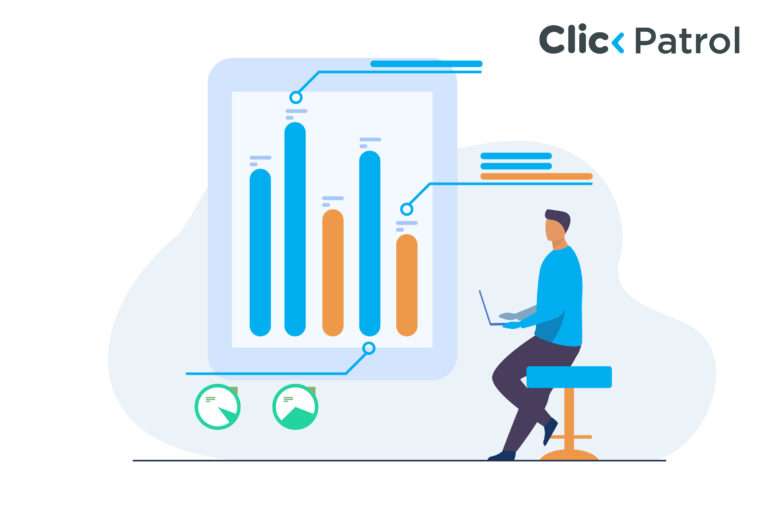
What is the Importance of Long-Tail Keywords in PPC?
Abisola Tanzako | Mar 12, 2024

Table of Contents
- How do long-tail keywords in PPC work?
- Long tail vs short tail keywords
- How to bid for long-tail keywords in PPC
- Long-tail keyword examples
- The importance of long-tail keywords in a PPC campaign
- There Is less competition
- Their conversion rates are higher.
- They make your content more visible.
- They can assist new or low-authority pages in getting ranked faster.
- They will assist you in ranking for short-tail keywords
- They optimize your blog strategy.
- They allow you to customize your content.
- You can source them from Google Analytics.
- They prepare you for future trends.
- They work better for voice search.
- Drawbacks of Long-tail keywords in PPC
- Long-tail keywords have less search volume.
- They are challenging to recognize.
- It may be challenging to use them organically.
- The outcomes may differ from those obtained with short-tail keywords.
- Conclusion
- FAQs
What exactly are long-tail keywords in PPC?
As the name implies, Long-tail keywords consist of extended and particular keyword phrases that users are inclined to employ when they are close to making a purchase or using a voice search. Compared to short-tail keywords, most long-tail keywords have a lower search volume. Long-tail keywords seem counterintuitive initially, but when you know how to use them, they can be very beneficial.
How do long-tail keywords in PPC work?
For instance, you work for a company that sells shoes. The possibility that your site will appear at the top of an organic search for “shoes” is very slim. There will be too much competition for that keyword, especially if you are a small company or a start-up. However, if your area of specialization is running shoes, then long keywords like “best-running shoes for flat feet” would undoubtedly find those customers specifically looking for that item.
Managing long-tail keywords means improving the communication channels between your company and the clients who are already out there, actively looking for what you have to offer.
Consider this: what are the chances that you will click through and purchase while searching on Google for the term “bed,” an inclusive term that is occasionally called a “head term,” However, if you search for “orthopedic bed for my grandma” on Google, you’ll probably find what you want and be ready to pay for it right away.
Naturally, using a long-tail keyword will result in less traffic than a more popular one, but the traffic you get will be better, more targeted, more devoted, and more interested in your services.
Long tail vs short tail keywords
Short tail keywords are generic terms with a high search volume and increased competitiveness. Some examples of short-tail keywords are “watches,” “travel,” and “coffee.”
While long-tail keywords are specialized terms with fewer competitors and a lower search volume. For instance, “smartwatches for sleep tracking,” “family-friendly holiday destinations,” and “organic decaffeinated coffee.”
Short-tail keywords are more generic and competitive and have more search volume than long-tail keywords. They also typically have lower conversion rates. On the other hand, long-tail keywords usually have more excellent conversion rates, are more precise, can be less competitive, and have a smaller search volume.
How to bid for long-tail keywords in PPC
- Use exact or phrase match types instead of broad or modified broad matches.
- Bid lower on long-tail keywords with lower search volume.
- Experiment with bidding higher on long-tail keywords that have high conversion rates.
- Use words that say “no” to stop the wrong people from coming.
- Use bid automation algorithms to adjust bids based on goals such as return on ad spend (ROAS), clicks, conversions, etc.
Long-tail keyword examples
Long-tail keywords are so specialized that users are mainly ready to purchase when they employ them in a search. Unlike single-word keywords or “head” terms like “puppy,” “shirt,” and “vacation,” long-tail keywords are more specific and denote research than these broad keyword terms.
Below are 10 examples of long-tail keywords;
- “Organic coffee shop near me” instead of “coffee shop.”
- “Best sneakers to buy for a rainy season” instead of “Best sneakers to buy.”
- “Gifts for women under $20” instead of “gifts for women”
- “DIY ideas for cleaning oils stains” instead of “cleaning ideas”
- “Water exercise for women” instead of “exercise for women”
- “Nigerian restaurant in Texas” instead of “restaurants in Texas.”
- “Mathematics tutorial on beginners” instead of “mathematics tutorial”
- “Baby food recipe 3–6 months Indian” instead of “baby recipe”
- “How to sleep with lower back pain” instead of “sleeping positions.”
- “Packing list for a three-day Caribbean cruise” instead of “vacation packing list”
The importance of long-tail keywords in a PPC campaign
Long-tail keywords have many advantages, making them a critical PPC campaign strategy. Below are some of the expected benefits of long-tail keywords:
There Is less competition
Due to their considerably lesser degree of competition, ranking for long-tail keywords is notably simpler than short-tail ones. Search Engine Land says long-tail keywords account for 70% of all web searches. If you are not focusing on long-tail keywords in your PPC strategy, you are missing out on the chances of getting targeted visitors to your website.
Their conversion rates are higher.
Long-tail keyword searchers are more specific about what they are looking for. Businesses frequently experience higher conversion rates when utilizing long-tail keywords because the search is more specifically tailored to the user’s demands. Your visitors need to determine the search intent. For example, If you are looking for a rug company to remodel your company and search for “rug company,” you will get hundreds and hundreds of results. These results will likely include commercial rug sellers, interior doctors, international rug makers, local rug makers, and even bulk rug suppliers.
If you instead search for “fur blue rug in Florida,” your results will likely be a rug seller who has blue fur in your city. Long tail keywords will always lead visitors to make quicker buying decisions, which is one of their significant advantages.
They make your content more visible.
Google customizes the search results for long-tail term searches based on several user parameters, such as geography, age, sex, and interests. This implies that two people who type in the exact search could get different results. Because long-tail keywords are more specific, they assist you in optimizing your website for diverse search categories.
They can assist new or low-authority pages in getting ranked faster.
A few factors, such as authority, quality, and relevance, are considered by Google when ranking web pages. Usually, for high-competition keywords, giant industry players dominate the rankings since these pages typically have more authority in the form of backlinks. Still, If your website is new or you need to get enough backlinks no matter how good your content is, you won’t compete with the big guys.
In this situation, being more relevant to your users by targeting them can give you a strategic advantage. More focused long-tail keyword targeting can result in highly relevant content outperforming other pages in answering these search phrases. Then, you can rank for lower competition keywords even without having a lot of backlinks.
They will assist you in ranking for short-tail keywords
Long-tail keywords frequently contain the short keywords you are trying to rank for. This combination increases your ranking for both your targeted and primary keywords, making it easier to achieve both objectives. This is good news because higher site rankings translate into more organic visitors.
They optimize your blog strategy.
Producing new content is one of the most straightforward strategies to get your website to start ranking. Maintaining a regular blog centered on your target audience’s needs and expectations is the most straightforward approach to do that. You don’t need to worry if you’re feeling overwhelmed about where to begin; your long-tail keywords can help.
Long-tail keywords will provide information about your target audience’s search behavior. Additionally, they use those crucial terms to provide insightful content that addresses some of your audience’s pain points.
They allow you to customize your content.
Long-tail keywords can direct the content you write in more detail. Four or five words, or even longer, make up long-tail keywords. They typically include descriptive words such as gender, location, and nationality.
This can be worked to your advantage by producing diverse content that complements your business’s range of products and services. You may utilize contextual marketing and tailor your content strategy more effectively.
You can source them from Google Analytics.
Long-tail keyword research is more accessible than people think it is. Some can be originated directly from your web analytics platform, such as Google Analytics.
You’ll be able to observe the effectiveness of your selected long-tail keywords, including search traffic and conversion rates when combining your Google Analytics with Google Search Console. The data lets you choose the best long-tail keyword for your PPC campaign.
They prepare you for future trends.
Long-tail keywords are more conversational, which makes them an essential component of your PPC campaign. Long-tail keywords are the cornerstone of Google’s latest search engine algorithm, which focuses on analyzing Natural Language Processing (NLP) and understanding the intent behind each search query.
These keywords are given precedence in search results shown to voice assistants, which extract answers from featured snippets. In summary, long-tail keywords are essential for the future of your blog or website.
They work better for voice search.
As you already know, long-tail keywords account for 70% of online searches. There are more long-tail keyword searches because people have conversations with or ask questions from a search. The conversational element gains even more appeal when voice search is included via programs like Google Home, Siri, and Alexa. Voice search users are the ones who use long-tail terms in their searches. They are precisely the kind of person you need and want to contact, and they have a specific need.
Why? High-intent consumers are more likely to convert when they locate quality information that addresses their needs. Using long-tail keyword targeting helps to increase the conversion rate. It’s also important to know that if you’re utilizing Google Ads, bidding on long-tail keywords typically costs less.
Drawbacks of Long-tail keywords in PPC
Long-tail keywords have less search volume.
This is the most significant drawback of focusing on long-tail keywords. Compared to short-tail keywords, long-tail keyword search traffic is substantially lower.
This implies that you will receive less traffic if you focus on long-tail keywords in your content.
They are challenging to recognize.
Long-tail keywords also have the drawback of being difficult to find. Finding the ideal long-tail keywords for your company can be challenging, even if several tools and techniques are available to help.
When you receive suggestions or ideas for long-tail keywords, they can seem completely unrelated to your company and its objectives.
It may be challenging to use them organically.
It can be challenging to include long-tail keyword targeting in your article naturally.
It might be challenging to include them in your material in a way that sounds natural and unforced because they are more specific.
The outcomes may differ from those obtained with short-tail keywords.
It’s also possible that targeting long-tail keywords will yield different results than targeting short-tail keywords. You might not receive as many leads from your content or as many visitors to your website because of its lower search volume.
Conclusion
Optimizing long-tail keywords is crucial to building a PPC campaign. Decide your mission and which long-tail keywords you can target with high-quality content. Then, create a content calendar with these keywords as the focal point for your campaigns, and you’ll soon be producing high-quality content targeted at high-value leads.
FAQs
What is a long-tail keyword generator?
Long-tail keyword generators are keywords with little monthly search volume, have 10 to 100 monthly search volumes, and are frequently less competitive and more straightforward to rank for than short-tail keywords because of their low popularity. They are, therefore, an excellent target for new websites. Below are 5 tools you can use to generate long-tail keywords:
1. Google Keywords Planner: You can use Google Keyword Planner for free. Although its original design is for advertising, you can still find long-tail keywords.
2. Google Auto-Suggest: Long-tail keywords might contain any number of words, but they are more likely to be wordier. This is why Google AutoSuggest is a valuable tool for developing long-tail keyword ideas.
3. Ahrefs’s Keyword Explorer: Ahref Keyword Explorer is a tool for conducting keyword research, with billions of keywords in its database.
4. Ahrefs’ Site Explorer: This site is a competitive research tool. One of its significant features is displaying the keywords your competitors rank for. Since Site Explorer does not currently have a Traffic Potential (TP) filter, you will need to manually determine the traffic potential of these long-tails to know if they are worthwhile targets. To do this, install Ahrefs’ SEO Toolbar and observe the traffic to the top-ranking page in Google.
5. Reddit
Another excellent place to find possible long-tail keywords is Reddit. However, by manually checking traffic on top-ranking websites, you must confirm that any ideas you find are what you’re searching for.

